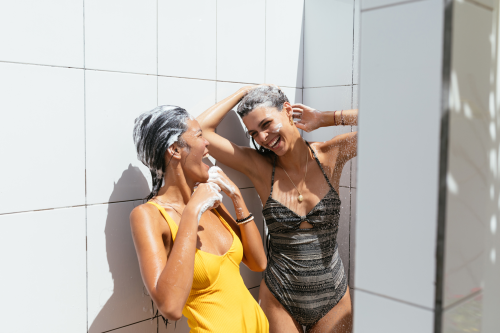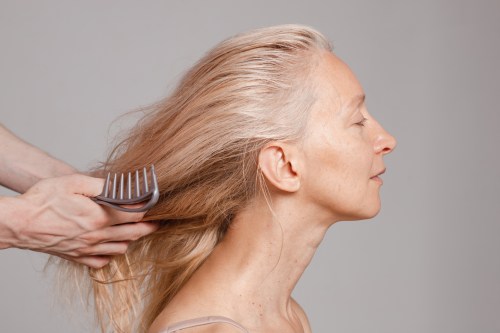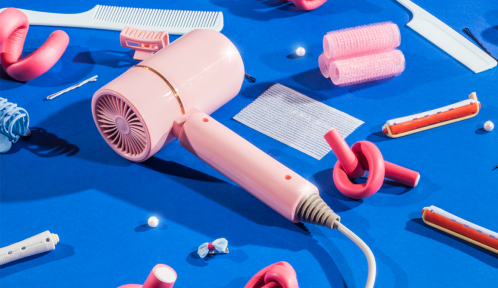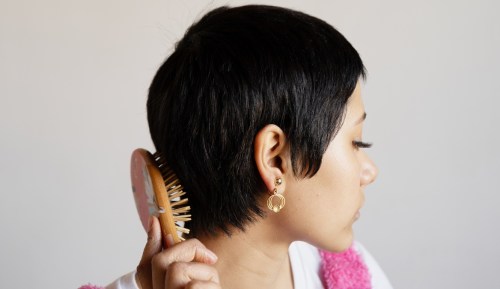Skin care “advice” is everywhere and comes from everyone. But we know that not all the information out there is factual, and the sources aren’t always trustworthy—which is why we constantly turn to dermatologists to get their expert-backed insight. And this year, they gave us some amazing tips.
Experts in This Article
board-certified dermatologist and founder of Brown Skin Derm
Miami-based board-certified dermatologist
board-certified dermatologist
board-certified dermatologist
Dr. Jennifer Holman is a Texas-based board-certified dermatologist.
board-certified dermatologist and founder of Dr. Loretta Skincare
board-certified dermatologist in Washington, DC
board-certified dermatologist at Medical Dermatology and Cosmetic Surgery in New York
board-certified dermatologist based in Cambridge, Massachusetts
board-certified dermatologist specializing in medical and cosmetic dermatology
For example, we learned that niacinamide can help regulate oil production and you can use antiperspirants all over your body. To get the deets on these tips and more, keep scrolling to learn about the best skin-care advice dermatologists gave us this year.
10 best pieces of skin-care advice dermatologists gave us this year
1. A weekly scalp massage can work wonders
“No matter your hair type or texture, massage your hair and scalp with hair oil once a week,” saysMichele Green, MD, a board-certified dermatologist in New York City. That’s because when you massage your scalp, you’re increasing blood circulation which promotes the distribution of nutrients throughout the scalp and hair. “This step in a hair care regimen helps strengthen hair follicles and promotes scalp and hair health.”
2. Base tans are a total myth
There is never, ever a need to get a “base tan” before vacation to avoid burning on the beach. “Any tan is your body’s response to DNA damage by UV radiation,” warns Jennifer Holman, MD, a Texas-based board-certified dermatologist who was diagnosed with skin cancer in her early 20s. “The way I explain it to patients is that a base tan is like smoking five cigarettes a day to get ready for a vacation when you’ll smoke twenty cigarettes a day.”
3. You shouldn’t rub your eyes too frequently
“The area around the eyes is the most sensitive part of your skin because it’s so thin. You can cause an abrasion very easily,” saysLynn McKinley-Grant, MD, a board-certified dermatologist in Washington DC. “If you find you’re rubbing your eyes a lot, then you might have an allergy to something either environmentally in the air or nail polish, mascara, your eye cream, or even eye drops.” Plus, aggressive rubbing can lead to darkening of the skin around the eyes “and it can cause a thickening of the skin, but not in a pretty way,” she says. “We call it lichenification of the skin with a lot of wrinkles in it that look sort of like a tic-tac-toe board with little lines going vertically and horizontally.”
4. You should wear sunscreen during gel manicures
“Next time you get your gel mani, don’t forget to bring your sunscreen along,” says Adeline Kikam, DO, a board-certified dermatologist. “The UV light used to harden the nail polish can potentially increase the risk of skin cancer and cause premature aging. Nail lamps mainly emit UV radiation, it’s one of the most DNA-altering penetrative wavelengths, and the number one culprit in accelerating premature aging and also contributes to skin cancer.”
5. Less is more when it comes to acne care
“If your acne is getting worse, I wouldn’t start using multiple products all at once,” saysMarisa Garshick, MD, a board-certified dermatologist in New York City. “If you’re going to start a new skin-care product, make sure you’re only doing one at a time. Give it another three weeks, but don’t panic and try everything that you see in the drugstore aisle. Make sure that you’re thoughtful in your approach and just use one new thing at a time. Maybe start by introducing a new cleanser. So for some people who are already using a prescription active ingredient and maybe a gentle cleanser, it’s possible that they need a medicated cleanser in conjunction with that. But don’t use that plus an exfoliant plus a toner all at the same time.”
6. Scratching or exfoliating psoriasis can make it worse
“There’s a known phenomenon called the Koebner Phenomenon, where any type of trauma—so cuts, scrapes, even self-induced trauma, like a scratch or a rubbing—can flare your psoriasis,” says Ivy Lee, MD, a board-certified dermatologist in Pasadena, California. She explains that oftentimes patients with mild psoriasis will try to get rid of it by scrubbing the area with a loofah or pumice stone, and will then find that the scales got worse or spread to a larger area. “And that’s what we call the Koebner Phenomenon, where if you manipulate, scratch, or abrade your psoriasis, it can spread.”
7. Permanent filler is a major no-no
When opting to get filler, you can get permanent filler that sticks around or temporary filler that uses ingredients like hyaluronic acid that break down over time and require re-injection. Ranella Hirsch, MD, a board-certified dermatologist in Massachusetts won’t go near the former. “Permanent ones like certain silicones and others carry the risk of delayed and often permanent complications,” says Dr. Hirsch. “While no procedure is entirely without risk, those of temporary fillers tend to be more immediate, temporary, and often reversible.”
8. You can use antiperspirant all over your body
“Antiperspirants contain aluminum salts which are ingredients used to block the sweat glands and reduce sweating,” saysHeather Woolery-Lloyd, MD, a board-certified dermatologist in Miami. “Most antiperspirants also contain ingredients to eliminate or mask odor too, but the primary aim of an antiperspirant is to reduce sweat.” She adds that it’s totally okay to use your regular antiperspirant on your arms, legs, chest, stomach, and wherever else you may need it—the only exceptions are your face and your intimate areas.
9. Staying on top of moisturizer makes a difference as you age
When your skin is dry, it’s tight. And when it’s tight, it’s easier for fine lines and wrinkles to settle in and stick around. So keeping your face moisturized can help stave off premature signs of aging,explainsJeanine Downie, MD, a board-certified dermatologist in Montclair, New Jersey, and the founder of Image Dermatology. “I wish that I had moisturized more when I was younger,” she says.
10. Niacinamide can help regulate oil production
“Niacinamide has calming and anti-inflammatory properties, which counteract the effects of stress hormones on the skin,” saysShirley Chi, MD, a board-certified dermatologist in Southern California. “Stress hormones increase oil production on the skin, so decreasing inflammation makes your skin less oily.” That’s because the glands that create oil and sebum have hormonal receptors on them. So calming your skin and protecting it from stress hormones helps to normalize the oil glands.
Want even more beauty intel from our editors? Follow our Fineprint Instagram account for must-know tips and tricks.
Sign Up for Our Daily Newsletter
Get all the latest in wellness, trends, food, fitness, beauty, and more delivered right to your inbox.
Got it, you've been added to our email list.










